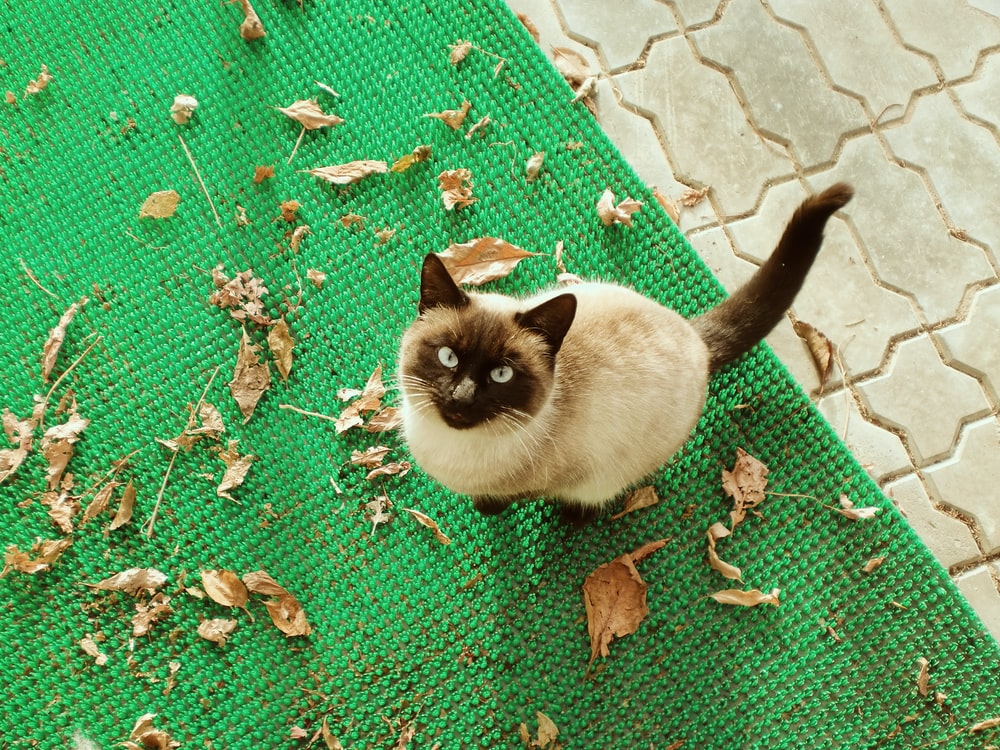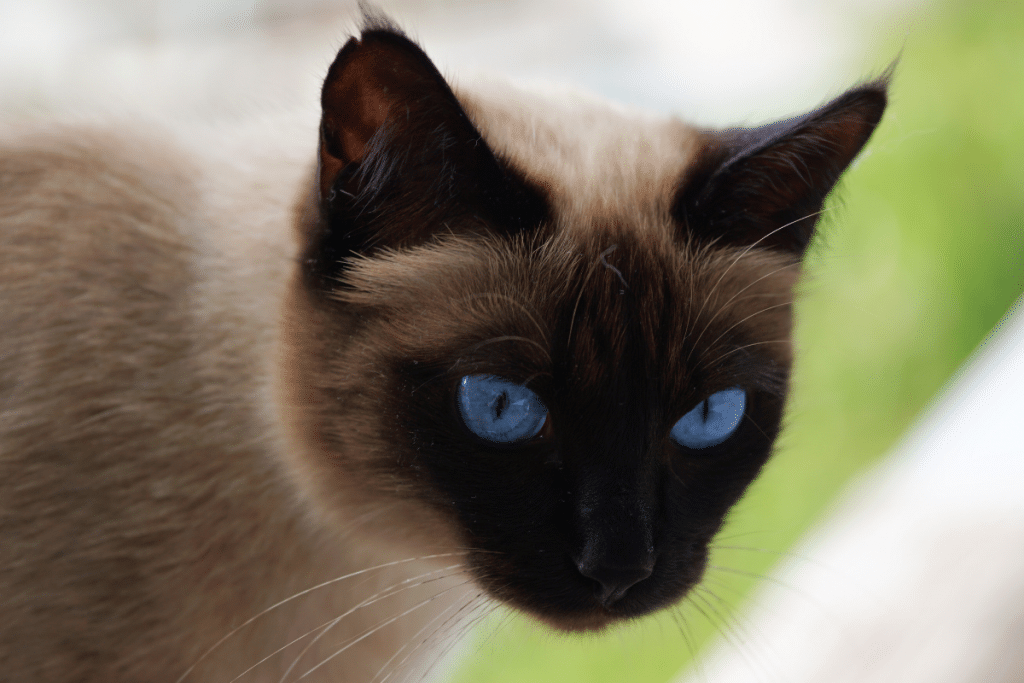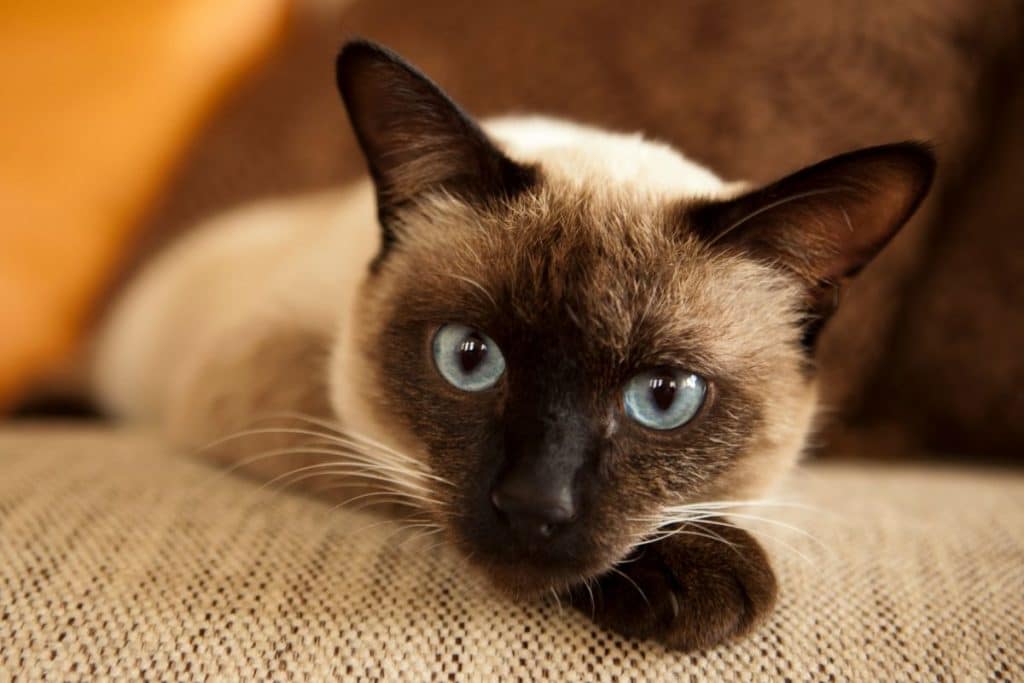You grab a sumptuous snack, turn the TV on, and lean back on your sofa. A few seconds later, your Siamese cat makes its way towards your feet and blinks those pleading and adorable eyes up at you, asking for a bite or two. Even though you would not mind sharing your meal one bit, you hesitate because you are not sure if the food item is okay for your cat or not.
In this blog, we will be discussing a few human foods that your cat can safely enjoy (along with the staples that you should keep away from your Siamese kitty).
Human Foods that Siamese Cats Can Eat:
1) Fish
Fish was always going to be the first item on this list, was it not? The only time that fish is bad for your Siamese cat when it is treating itself directly from your fish aquarium. Apart from that, oily fish like mackerel or tuna can help improve your furry friend’s brain, joints, and eyesight.
2) Cheese
Ask your cat to join in the next time you are having cheese for breakfast – the protein and calcium content is immensely beneficial for both you and your cat.
3) Meat
Meat such as beef and poultry is a completely natural option for cats. However, you need to avoid hams or cold-cuts, since these contain high levels of sodium and can prove toxic for the sensitive stomach of your Siamese cat.
4) Bananas
You are probably aware of how important bananas are for growing kids, but did you know that they can quite a healthy option for your Siamese cat as well? Having said that, bananas should not become a regular part of your cat diet, owing to the high level of sugar.
5) Berries
Berries such as strawberries and blueberries have high levels of antioxidants that can offer many benefits to both humans and cats. This, coupled with their low sugar content, makes berries a good food for your cat.
6) Carrots
While vegetables are an essential part of the human diet, they are nowhere near as important for kitties. However, this does not mean that veggies are not safe or even beneficial for them. Your Siamese kitty might enjoy a few cooked carrots every now and then; however, make sure to avoid feeding them raw carrots, since there is a chance that your cat might choke on them.
7) Melons
Cats usually enjoy tiny pieces of seedless, honeydew, or cantaloupe watermelons. In addition, melons are rich in Vitamins C and A – two of the most essential vitamins for humans and animals.
8) Pumpkins
Avoid the spice and simply feed the pumpkin to your Siamese cat. Alongside a host of other nutrients, puree pumpkins are rich in fiber, which can help with digestive issues. In addition, since Siamese cats like to lick themselves a lot, they often end up with hairballs in the stomach – another thing that fiber can help with.
9) Rice
Much like vegetables, rice are not a requirement for cats, but will not harm them either. In fact, if your Siamese cat is going through digestive problems, a bit of rice might actually prove beneficial.
10) Eggs
Abundant in protein, eggs are yet another healthy food that you can (and should) feed your Siamese cat. However, do go for cooked eggs, as raw ones sometimes contain bacteria such as E.coli or salmonella.
11) Oatmeal
Oats are packed with iron, protein, and fiber – all three of which are highly advantageous to your Siamese cat’s general health. Moreover, if your cat is struggling with skin problems, topical application of oats may be helpful.
12) Spinach
Have you ever noticed your Siamese cat nibbling on a bit of grass? Cats love leafy-green vegetables – not to mention that spinach contains a wide variety of vitamins. However, spinach should not be given to cats struggling with urinary or kidney problems.
Human Foods that Siamese Cats Cannot Eat
1) Alcohol
Any foods or drinks that contain alcohol can lead to severe problems in cats, including diarrhea, vomiting, breathing issues, coma, and even death.
2) Yeast dough
If you consume bread made up of yeast dough, you should avoid sharing that bread with your Siamese cat. Siamese cats already have sensitive digestive systems, and yeast dough can lead to the accumulation of gas. This can cause the cat’s stomach to bloat and twist – a condition that can quickly turn fatal. In addition, alcohol is one of the byproducts of yeast, and we have already talked about the problems that alcohol can cause in felines.
You can, however, feed baked bread to your Siamese cat, provided that the cat is healthy.
3) Coffee
Coffee contains methylxanthines such as caffeine and bromine. These substances, when consumed by cats, can lead to diarrhea, vomiting, seizures, tremors, and even death.
4) Chocolate:
Like coffee, chocolate also has the caffeine (a methylxanthine), the effects of which have already been discussed above. Different kinds of chocolate contains have different methylxanthine concentrations – white chocolate contains the least amount, while cocoa powder contains the most. As a rule, however, no chocolate can be considered safe for cats.
5) Coconut (water and flesh)
Flesh and milk from fresh coconuts can trigger digestive problems in Siamese cats. Coconut water has potassium levels that are generally unsafe for cats, even though coconut oil might prove beneficial for certain skin problems that your cat might be dealing with. Having said that, we recommend consulting your veterinarian before implementing this remedy.
6) Citrus fruits
Grapefruits, Clementine, oranges, lemons, and limes are filled with citric acid, which can trigger various problems in Siamese cats. The fruits themselves, as well as their seeds, peels, leaves, and stems should be avoided. Although small amounts of citrus fruits will likely only lead to a mildly upset stomach, larger quantities can cause severe vomiting, diarrhea, and suppression of the nervous system.
7) Dairy
Lactose intolerance is common in felines, which means that dairy items (such as yogurt, milk, or cheese) do not sit well with their digestive systems. While complete avoidance of such items is the best way to go, you can always discuss lactose-free alternatives with your vet.
8) Raisins and grapes
Although the precise reason behind the toxicity of these items is not known, there is proof that raisins and grapes can cause kidney failure in cats (and even dogs).
9) Nuts
Nuts belonging to the macadamia tree are toxic to cats. However, much like raisins and grapes, the cause behind this toxicity is not completely clear. Other kinds of nuts, such as walnuts, pecans, and almonds, contain high amounts of oil and fats that can lead to upset stomachs and even issues like pancreatitis in Siamese cats.
10) Raw/undercooked meat
Like we mentioned in the first section, raw or even undercooked meat can contain the E.Coli and Salmonella bacteria. For this reason, cats that consume raw-meat diets deal with frequent gastrointestinal problems.
11) Raw eggs
Much like raw meat, raw eggs might also be infested with Salmonella. Indications of a salmonella infection are fever, diarrhea, and vomiting. In addition, raw eggs have avidin, which is a kind of enzyme that prevents the absorption of biotin in cats (biotin is essential for fur and skin health).
12) Raw fish
Raw fish, too, is vulnerable to bacteria that can lead to food poisoning in Siamese cats.
13) Certain vegetables
Although cats can safely consume various vegetables, others such as chives, shallots, scallions, leeks, garlic, and onions can prove harmful. These vegetables can lead to gastrointestinal issues in cats, and might even damage their red-blood cells. Any foods that contain these herbs or vegetables (such as garlic breads) must also be avoided.
Final Word
There you have it, a fairly comprehensive list of all safe and unsafe foods for your Siamese cat. The next time your feline friend asks for a share of your snack, you will know exactly what to do.
If you think that your Siamese cat has ingested or eaten something harmful, promptly reach out to a veterinarian – do not wait until your cat starts showing indications of sickness.



